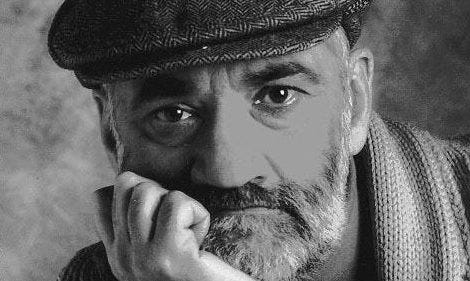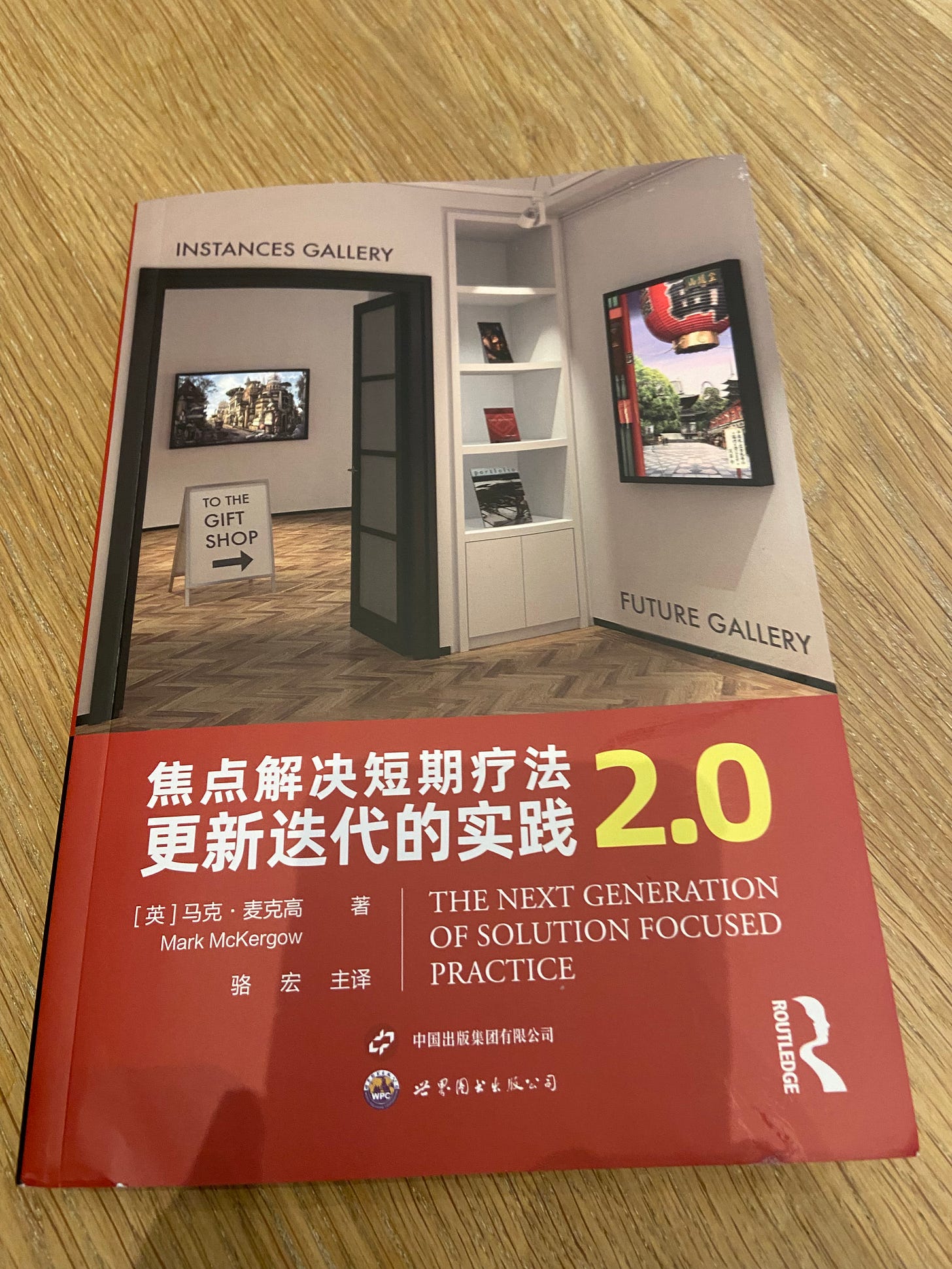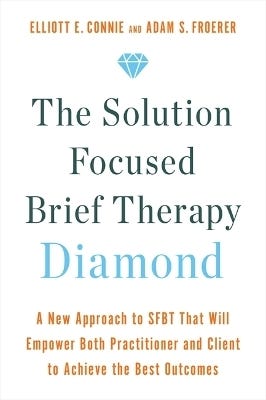17. The Death Of Resistance: what is it and why it’s so important in Solution Focus
The landmark 1984 paper by Steve de Shazer marked a vital shift in SF practice and is still key in building progress today
Today (3rd May) is SF World Day. Solution Focus (SF) practitioners all over the world celebrate the approach we all use, often by holding public events to spread the word. Why this date? It’s the anniversary of the publication of ‘The Death Of Resistance’ by Steve de Shazer in 1984. The paper was a key moment in the formation of the SF way of working and remains a key tenet of our field. I’d like to share why I think it’s still important today.
Steve de Shazer: Solution Focused in Milwaukee
Steve Darwin de Shazer (1930-2005) (not many people know his middle name) was a founding figure of Solution Focused Brief Therapy. Along with his wife Insoo Kim Berg, he founded the Brief Family Therapy Centre (BFTC) in Milwaukee in the late 1970s as a therapeutic think-tank. They assembled a team who worked together, experimented, wrote and researched about how to make family therapy (and later all kinds of talking therapy) briefer and more effective. Working in the interactional brief therapy tradition (about which I have written here before, de Shazer and Berg made several key innovations, including that solution-building was a different language game to problem-solving, and that therefore talk about problems could be superseded by talking about ‘solutions’ – what people wanted in their lives and what was working already to create that.

The origin of Solution Focused Brief Therapy as a specific form is usually traced back to the 1986 paper Brief Therapy: Focused Solution Development (de Shazer et al, 1986, free download). However, the team were developing their work for years before this. De Shazer started work on The Death Of Resistance (free download) in 1979. After no less than seventeen rejections and six rewrites the paper was finally published in Family Process in 1984. SF is now used all over the world for many purposes including coaching, social work, education and organisational development. I wrote the first SF coaching book The Solutions Focus with Paul Z Jackson in 2002, and it’s still selling. This small team from Milwaukee had a reach and impact far beyond any reasonable expectation or even dream.
The Death Of Resistance
Reading the paper now, it’s a rather technical and seemingly abstruse piece of work. There’s a reason for that; de Shazer was writing for a small group of fellow professionals who were immersed in family therapy and could therefore take much for granted about his readers’ knowledge. Let me attempt to position the paper more accessibly before coming on to why it’s important. I will start using the therapist/client language of de Shazer and team, and widen it out later on.
The BFTC team were very interested in shifting from resistance (by their clients) to co-operation (with their clients). De Shazer had written about these as two different paradigms in 1982 (de Shazer, 1982, 1982b), drawing a clear distinction between the Contest model of therapy and the Co-operation model. In the Contest model, the therapist wins when the clients co-operate; if they don’t co-operate, they are ‘resistant’. This resistance is said to be located within the family-system as something they do, rather than a product of the client-therapist interaction. De Shazer is clear that even though his illustrious teachers Milton Erickson and the Mental Research Institute, Palo Alto had refined this notion they were still using the Contest metaphor.
In the Co-operation model, this notion of resistance is replaced by a more interactive and responsive concept. “Each family, individual, or couple shows a unique way of attempting to cooperate, and the therapist's job becomes first to describe to himself that particular manner that the family shows, and then to cooperate with the family's way, and thus to promote change" (de Shazer 1982). The Contest model, and with it resistance, was declared dead in the Death Of Resistance paper. This didn’t mean it was dead at all – it’s sadly still alive and well. But de Shazer and his team wanted to underline that they were no longer using it and they thought it was actually damaging to their work.
De Shazer had begun working on the topic when a family described as ‘highly resistant’ by the referring clinicians were found to co-operate readily with the BFTC team (de Shazer, 1989). He quotes research from the period showing the average number of sessions declining from 7 in 1979 to 4.5 in 1988, over 1000 cases, with an increased success rate of 80% from 72%. ‘Resistance’ ended up apparently buried in de Shazer and Berg’s garden beneath a tombstone in the manner of murder mysteries, visible if one ‘looks hard’, reading "Here lies Resistance/He was a good and useful fellow in his youth/R.I.P 1978”.
In a subsequent (and much more readable) paper Resistance Revisited (de Shazer, 1989, free download) de Shazer writes about how he was not allowed by the peer review process to say what he really wanted to say; that the idea of resistance had turned from a metaphor into a fact, and not a useful one. Resistance came from the therapist’s head, not from reality. It was the result of therapeutic error, not client shortcomings. The closing paragraph of the 1989 paper is worth reproducing here:
It seems that therapists and clients alike can go on quite well without the concept of resistance. Theoretically it has proved to be unnecessary and, in fact, pragmatically its absence, or rather the presence of the concept of cooperating, has proved useful. Therapy is much more fun for everyone when the topic of conversation is centered around the times when the complaint is unexpectedly absent, focusing on what it is that the clients are doing that is useful, effective, good for them, and fun. (de Shazer, 1989)
Why did Resistance meet its end?
As de Shazer notes, when clients ‘resist’ it is not because they are in denial (another way of putting it), not ready, inadequate or anything else. If we take the Co-operation model seriously (and we do, in SF) then it is rather the result of our error, our failure to listen to them, our tackling the issue inappropriately. This is both a damned nuisance (as it removes a key excuse for not making progress) and a blessed relief (as it puts us back in our proper place of helping the client, not blaming them).
There is an odd form of ‘solution focus’ which I sometimes come across. Remember Dr Phil, the in-house psychologist from the Oprah Winfrey TV show? He was heard to say he was solution focused – “I know the solution to your problem, and I’ll tell it to you”. This is both a million miles from SF as we know it, and it’s a superb recipe to generate resistance. It goes along these lines:
Therapist: “Here’s what you need to do”
Client: “That won’t work. I just know it/tried it before/can’t do it” (or whatever)
Therapist “Aha! You’re resistant. Now we have to work on that as well as your problem…”
This is a classic form of the Contest model, where the client and therapist are competing with each other, as if they were on opposite sides of the net in tennis. If we take the Co-operation model seriously, the therapist (or practitioner, to generalise) runs around the net and stands alongside the client. They face the client’s problems, life experiences and hopes together. The key is to stop trying to get the client to ‘do X’, ‘stop doing Y’, ‘think Z’ or whatever and start listening to them.
Playing Co-operation, not Contest
In a coaching/therapy/helping professional setting, playing Co-operation is usually a matter of listening very hard. What your clients say is absolutely key. And not just the general gist, but the actual words. We have to learn to listen so we can repeat the client’s last statement word for word. (We don’t often actually do that, but it’s very good practice – we more usually pick up on a key word or phrase to build the next question around.)
Another benefit of focusing on the actual words is that it gets us away from listening ‘between the lines’. This kind of listening is a normal part of everyday life, but in the Co-operation game it gets in the way. “He says X… so he must be feeling Y, thinking Z and worried about P and Q.” Maybe, maybe not – but in the helping context, don’t assume. And most of the time, don’t even ask. In SF we are usually building descriptions around what the client wants in their life and then the future, past and resources supporting this (as Elliott Connie and Adam Froerer’s useful ‘SF Diamond’ model puts it. If it’s not connected to one of those things, find something else to talk about.
This practice gets us away from thinking that ‘I know better than you – about you’. As professionals we have lots of skills and knowledge. We may know about wiring a house, cooking a meal, throwing a pot, building a space rocket. This is all fine and dandy. What we don’t know (and in SF, can’t know) is other people’s hopes, life experiences, values, desires, phobias and anything else. There is a lot written about the ‘not knowing’ position in SF. A key factor, all too often overlooked, is that the not-knowing is not all-encompassing; it’s about the experience of another. I cannot, and must not assume to, know anything about your experience. I can ask you about it and help you expand on some aspects of it (in the way I call ‘stretching the world of the client’ in my book The Next Generation of Solution Focused Practice).
How does Co-operation work for managers and organisers?
This Substack is called Steps To A Humanity Of Organisation, and my main topic is how to organise both humanely AND effectively. This is NOT a trade-off in my opinion, there are ways that we can be both humane and effective, and SF practice is one of those. But – where you’re a manager, taking this not-knowing position is harder. Seeing someone for a handful of coaching sessions is one thing, as organisers and managers we may have relationships going back years with our colleagues, teams etc. It’s much harder to pull the ‘not knowing’ thing when we know (and are expected to know) perfectly well.
There’s an old saying which is useful here. In fact I carried it around on a poster for many years to put in conference rooms where I was teaching and facilitating.
When you insist, I resist – ancient proverb
Playing Co-operation as a manager is about (again) being on the same side of the net as the people you’re working with. It’s the two (or more) of you against the business challenge. A few tips about how to put this into operation, based on my experience:
Use ‘we’ language rather than ‘you’ language; we’re in this together, and we will succeed or fail together
Explore future hopes (for this thing); where are we trying to get to? What do we want? What would be ‘good enough for now?’ (Often a good question when things are busy and overwhelming.)
What has worked for similar kinds of thing (in our experience) – here and elsewhere. Pooling this kind of information can help step over obstacles and find workable ways forward swiftly
Work in small steps, not huge action plans. The unexpected happens all too frequently. By working in small steps (a few days, a week or maybe two) and revisiting we can adapt and embrace what actually happens, as opposed to what we hoped for but didn’t get. (Note: this is done in the context of a known and mutually agreed long-term direction, not simply bending with the wind according to whatever is today’s flavour).
Make sure that everyone knows and agrees with the small next steps and also understands the direction of travel. In the Co-operation game, many minds make maximum momentum (MMMMM). Delicious!
I wrote last week about the wretched Dominic Raab MP whose bullying which led to his graceless resignation. One complaint (which he was proud to admit) was that he belittled his staff, used an aggressive and demeaning manner and continually complained that work presented to him was sub-standard in the extreme. Raab was proud that he demanded high standards and sought to enforce them. The civil servants, on the other hand, were being signed off sick with stress. Raab seems to me to have had no alternative to the Contest game; when he ‘won’, the others had to lose. When he knew better, the others had to suck it up. When work wasn’t up to scratch, he was entitled to complain.
I wonder how Raab or someone like him might learn to play the Co-operation game? On that basis, substandard work is as much his fault as anyone else’s. Rather than become aggressive, he might ask some questions about how to help his people perform better. Rather than hector them into sickness, he might seek to wonder how he was managing to achieve such dreadful outcomes. (I don’t for a minute think Raab would be interested in this kind of thinking. It seems that he lives in a macho fantasy world where shouting and screaming gets better results than co-operating.)
Conclusions
It is quite possible to ask for (and get) high standards by playing the Co-operation game.
Be clear and open about what’s required
If it doesn’t materialise, wonder how you could have been clearer
Ask what you can do for them, not what they can do for you (to misquote John F Kennedy)
It’s OK to be frustrated – but be more frustrated with yourself than the others.
And as always please like, share and comment below! Thank you.
References
de Shazer. S. (1982). Patterns of Brief Family Therapy. New York NY: Guilford Press.
de Shazer, S. (1982b). Some Conceptual Distinctions Are More Useful Than Others. Family Process 21, 72-84.
de Shazer, S. (1984). The Death Of Resistance. Family Process 23, 11-17.
de Shazer, S. (1989). Resistance revisited. Contemporary Family Therapy 11(4), 227-233.
de Shazer, S., Berg, I. K., Lipchik, E., Nunally, E., Molnar, A., Gingerich, W. & Wiener-Davis, M. (1986). Brief Therapy: Focused Solution Development. Family Process 25, 207-221.
Dates and Mates
The SOLWorld 2023 international conference of SF practitioners working in organisational settings is on 8-10 June 2023 in Vienna. We have a fantastic programme with some 40 people leading sessions. I will be there involved in several sessions, including this one, which will be all about the ideas I am assembling here on Substack:
Whether you’ve been doing SF for years or are coming to it new, the event will be inspiring and There are still places available - come and join us in the beautiful city of Vienna!
I’ve just completed a wonderful ‘Five Day SF Challenge’ with Elliott Connie, Adam Froerer and the good people at the SF Universe. They do lots of online trainings, events, supervision sessions and more and have a superb range of online resources. And their new book The Solution Focused Brief Therapy Diamond is excellent. Well worth checking out.








I thought this was very sensible - My personal internalisation is always to default to thinking "If this isn't working what could I be doing better?" (even if (especially if?)) I'm deeply convinced the other person is somehow at fault.
Thank you Mark, what resonated with me is the not knowing another persons experiences is what then empowers you to ask about it and help both you and the person expand and better understand aspects of it together, asking questions to build descriptions and not give advice or assume to know how to fix the problem.